Recording studio: CTS Studios, London, 47-53 Kensington Garden Square, London, UK
Article Oct 27, 1966 • Paul McCartney fined £1 for causing obstruction with his car
Session Oct 31, 1966 • Mixing "Paperback Writer"
Session Early December 1966 • "The Family Way" sessions
Interview November 1966 • Paul McCartney interview for The Beatles Monthly Book
Interview November 1966 • The Beatles interview for The Beatles Monthly Book
Next session Nov 07, 1966 • Remixing "I Want To Hold Your Hand"
Some of the songs worked on during this session were first released on the "The Family Way - Original Soundtrack Recording (2011)" Official album.
“The Family Way (Original Soundtrack Album)” is the soundtrack to the 1966 film “The Family Way”, directed by Roy Boulting and starring Hayley Mills. It was composed by Paul McCartney and produced and arranged by George Martin.
The directors, the Boulting Brothers, actually approached me – one of them, Roy – and he was interested in some of the music we’ve been writing. He said, ‘Would you be interested in actually writing something for film?’ I said, ‘Wow, great honour.’ And they’re very good directors, quite famous English directors, so I knew they’d be good and the film would be good, and a very good cast with John Mills and Hayley Mills and Hywell Bennett. So I said, ‘Yeah, okay!’
Paul McCartney – From Paul McCartney: The Family Way soundtrack – facts, recording info and more! | The Beatles Bible
In October 1966, the British magazine New Musical Express reported that John Lennon and Paul McCartney would collaborate on the score, following John’s return from filming “How I Won The War” in Spain. However, John never really worked on it (even if George Martin explained he “advised a bit“), and therefore it is considered the first solo effort by Paul McCartney, as it was the first time Paul didn’t share the credits with John.
When he returns from filming in Spain next month, John Lennon will help is songwriting partner Paul McCartney to score the new Hayley Mills film, All In Good Time … The picture’s alternative working title of Wedlocked has now been dropped, the producers having settled on All In Good Time. Paul is believed to be already working on the music.
New Musical Express – October 1966
John was visiting and advised a bit, but Paul created the tune and played it to me on guitar. I listened and wrote it down. It is a fragile, yet compelling, melody. I arranged it for woodwinds and strings and we called it ‘Love In The Open Air.’ It’s quite haunting.
George Martin – From New Musical Express – December 24, 1966
However, Paul’s contribution to the soundtrack was minimal. Sometimes in October 1966, before going on holiday in France, he wrote 15 seconds of music for the film’s main theme. When he came back from his safari trip in Kenya in late November, he wrote another bit, the film’s love theme which would be known as “Love In The Open Air“.
[George Martin] is the interpreter. I play themes and chords on piano or guitar, he gets it down on paper. I talk about the idea I have for instrumentation. Then he works out the arrangement. I tried to learn music once with a fellow who’s a great teacher. But it got too much like homework. I have some block about seeing it in little black dots on paper. It’s like Braille to me.
Paul McCartney – Interview with Sunday Times, 1966
I went to America for a time and on returning [November 21?] realised we needed a love theme for the centre of the picture, something wistful. I told Paul and he said he’d compose something. I waited, but nothing materialised, and finally I had to go round to Paul’s house and literally stand there till he’d composed something.
John was visiting and advised a bit, but Paul created the tune and played it to me on guitar. I listened and wrote it down. It is a fragile, yet compelling, melody. I arranged it for woodwinds and strings and we called it ‘Love In The Open Air.’ It’s quite haunting.
George Martin – Interview with New Musical Express, December 24, 1966
By the final week of October, George, with yoga experience, sitar lessons and moustache, was located in a picturesque house beside a lake not too far from Bombay, India. Paul was in London, watching different bits of the Boulting Brothers’ film (The Family Way) and writing the background music for each scene, and Ringo was taking it easy in Spain, and watching John working on the final segments of How I Won The War.
Neil Aspinall – From “The Beatles: Off the Record” by Keith Badman, 2008
From there, George Martin wrote the score to extend those two themes to a 24-minute-long soundtrack.
I had a look at the film and thought it was great. I still do. It’s very powerful and emotional – soppy, but good for its time. I wanted brassband music; because with The Beatles we got into a lot of different kinds of music, but maybe brass band was a little too Northern and ‘Hovis’. I still loved it. My dad had played trumpet and his dad had been in a brass band, so I had those leanings. For the film I got something together that was sort of ‘brassy bandy’, to echo the Northernness of the story, and I had a great time.
Paul McCartney – From “The Beatles Anthology” book, 2000
The book “Eight Arms To Hold You” by Chip Madinger and Mark Easter places the recording sessions for the soundtrack in early December 1966.
Composition of ‘Love In The Open Air’ was not completed until after Paul returned from an extended vacation to France, Spain and Kenya. Martin took away the melody, this time arranging it for woodwind and strings. Five sessions at CTS Studios followed, spread over the course of three days and nights, all in the midst of recording the Beatles’ ‘Strawberry Fields Forever’.
From “Eight Arms to Hold You: The Solo Beatles Compendium” by Chip Madinger and Mark Easter
Steve Turner, in the book “Beatles ’66“, gives some indications about the session players who contributed to this session:
Martin then subjected the composition to enough repeats, variations, and restatements to fill out twenty-four minutes of a recording. This was later recorded at CTS Studios over three days by the George Martin Orchestra (actually a collection of session musicians including Neville Marriner and Raymond Keenlyside on violins, John Underwood on viola, and Joy Hall on cello), but Paul took the composer’s credit.
If the reference “all in the midst of recording the Beatles’ ‘Strawberry Fields Forever’” is right, this suggests the music for “The Family Way” was completed 10 days before the film’s premiere on December 18, 1966.
If it sounds like it was done in a hurry, it’s because it was done in a hurry.
George Martin
In May 1968, Paul would win his first solo Ivor Novello award for “Best Instrumental Theme” for “Love In The Open Air“, from “The Family Way” soundtrack.
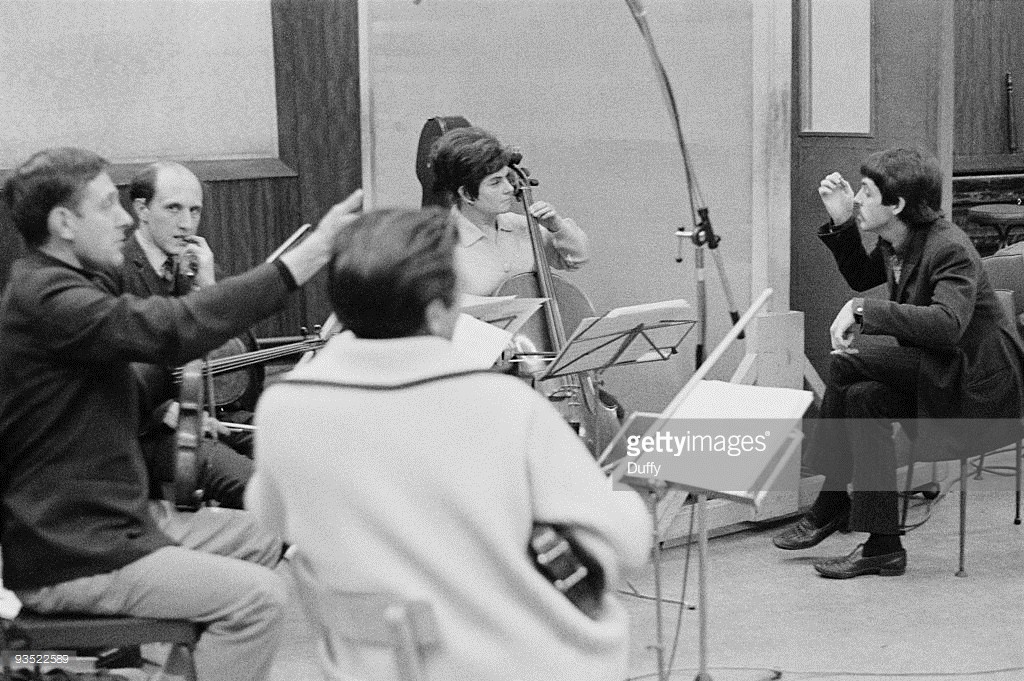
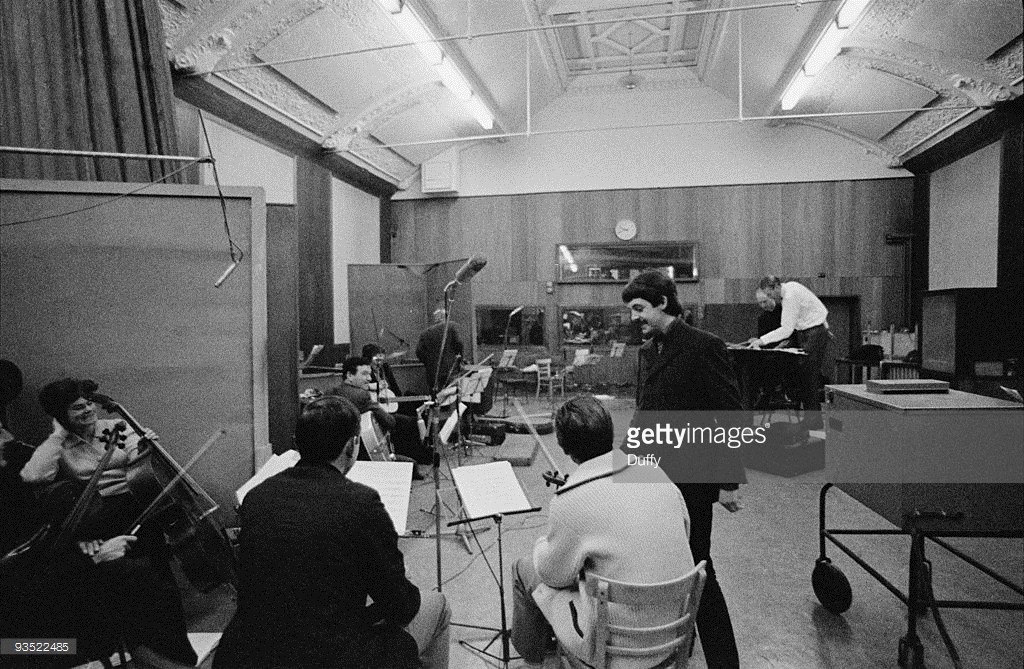
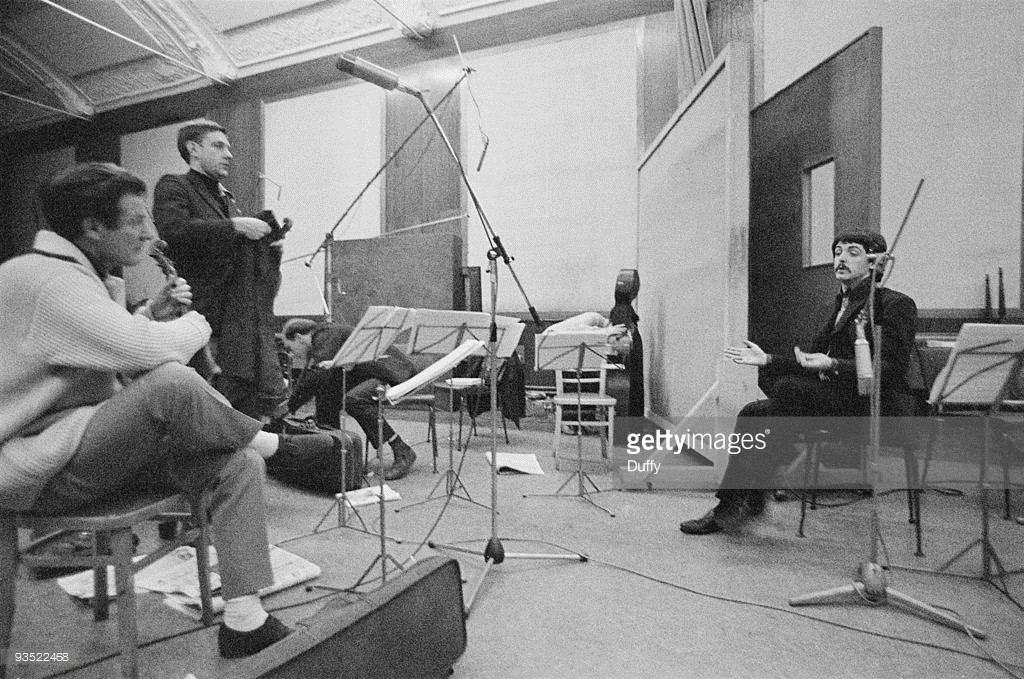
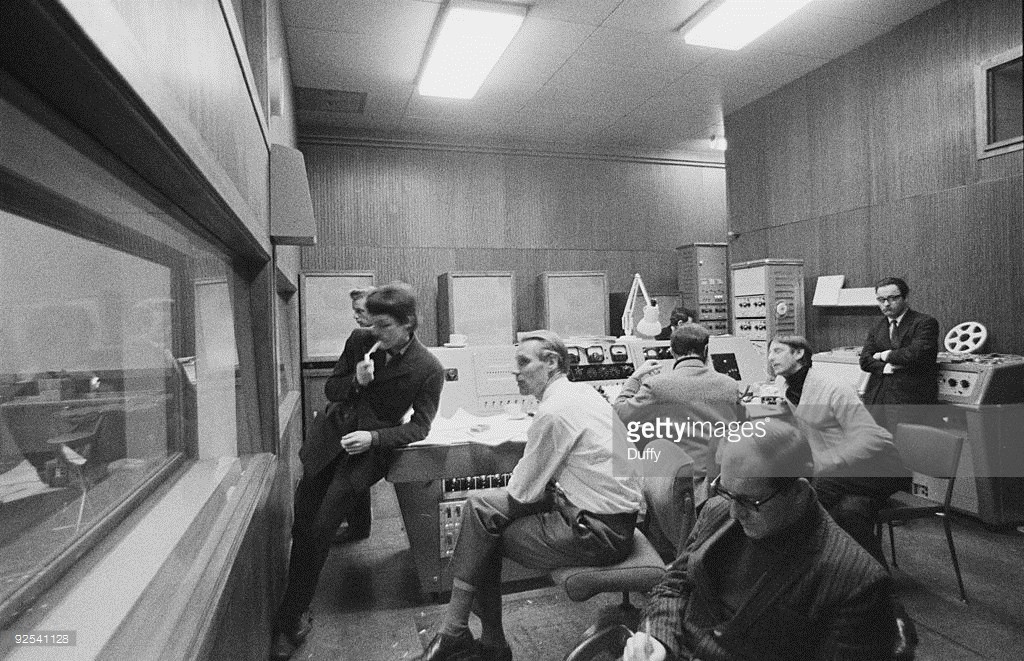
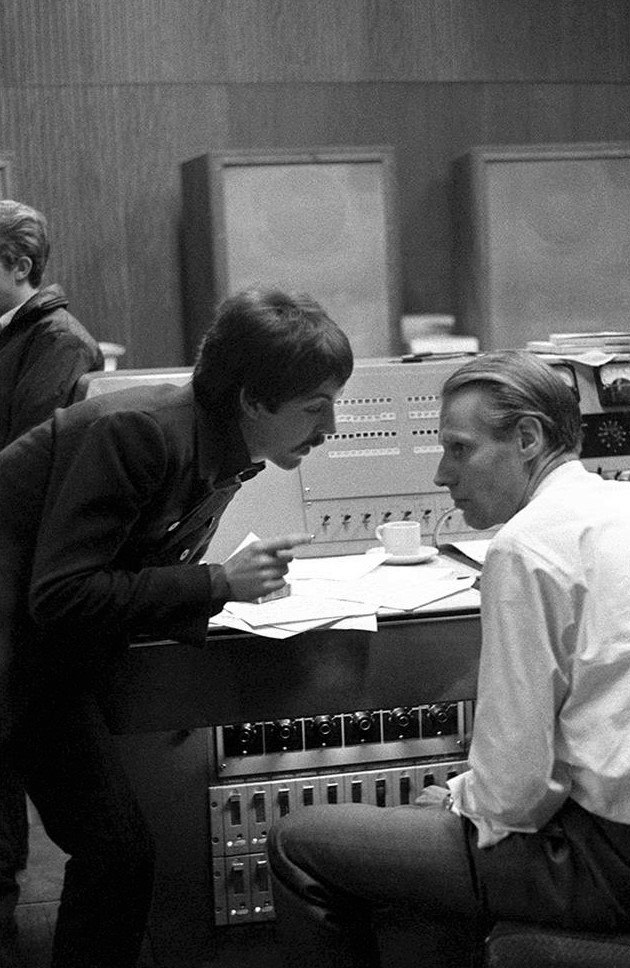
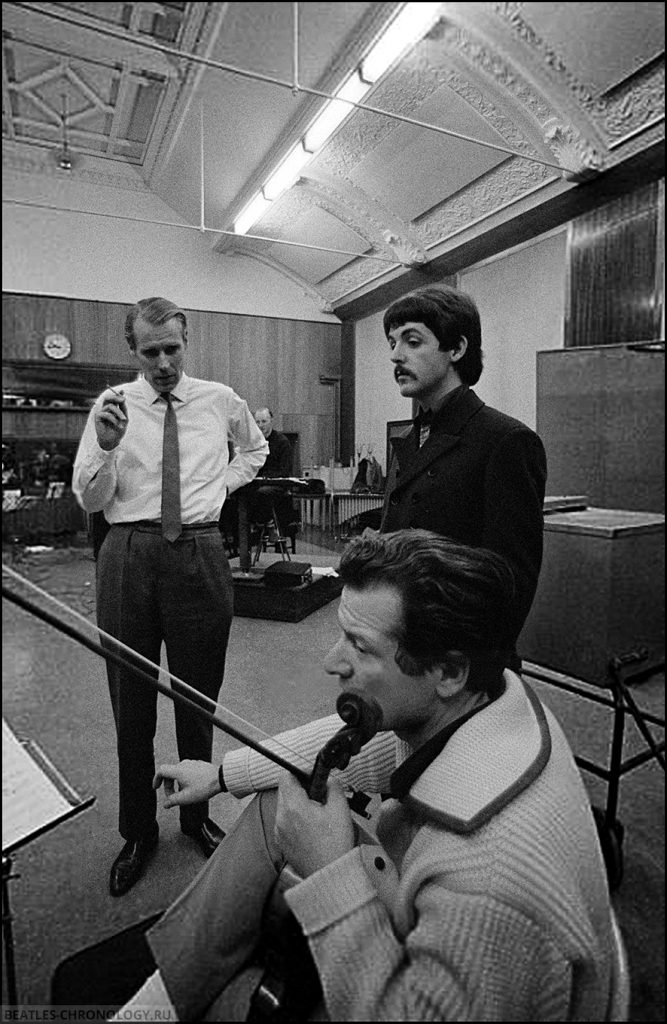
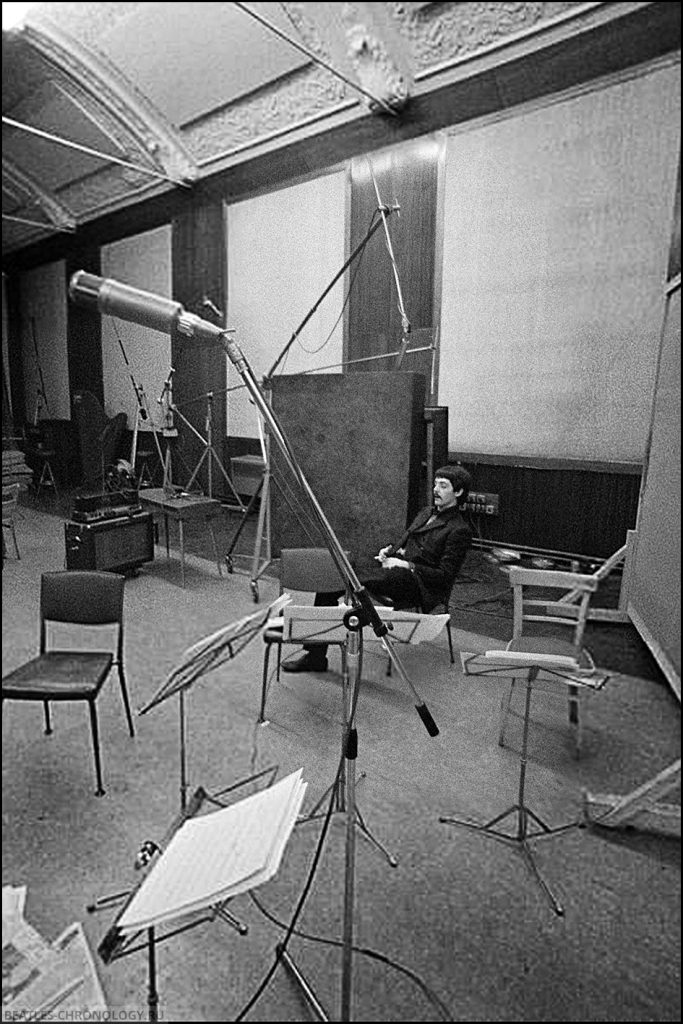
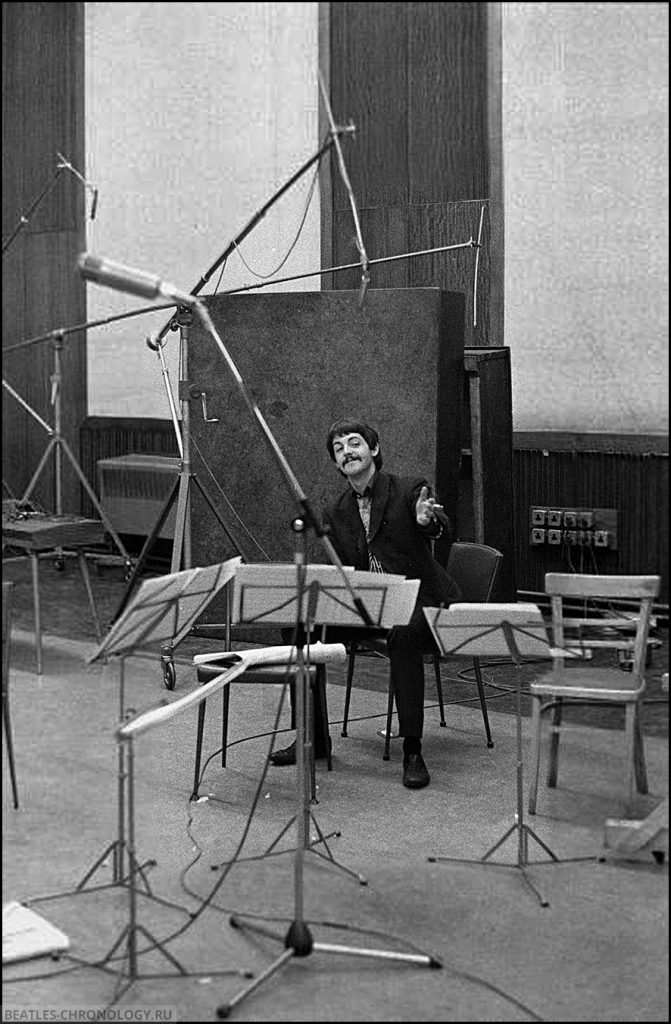
BEATLES PAUL WRITES FILM SCORE
As expected for a long time, Paul is to write a film score. He has been commissioned to write the theme music for “All In Good Time” – a Boulting Brothers production to be released by British Lion starring Hayley Mills, John Mills, Hywell Bennett and Liz Frazer. As yet, there is no release date, but it is expected to be released long before “How I Won The War”. It is now quite obvious that all four Beatles will diversify in different spheres — so hurry up George and Ringo.
From The Beatles Monthly Book – November 1966

PAUL’S FILM CAUSES A PANIC
PAUL McCartney’s first film theme music — which incidentally is the first new Beatles composition since “Revolver” and the first Paul McCartney music to be recorded by musicians before the Beatles have waxed it — has become the subject of considerable confusion in the last two weeks.
Paul has composed two items —the very beautiful “Love In The Open Air” and the mournfully dignified Theme of “The Family Way,” the name of the film. As arranger George Martin (and Beatles a-and-r man) forecast the former could be another “Limelight,” I think it’s worth telling you about the confusion.
For the first time in his career George Martin — who put Paul’s compositions on to paper, because Paul cannot write music, and who did the arrangements of the numbers for orchestra — finds that he is in competition with himself!
This Friday he has two instrumental singles of the two Paul McCartney tunes coming out on rival labels and issued by rival firms! It happened like this:
He conducted the film soundtrack of “The Family Way” for Tudor Films, the Boulting Brothers company which made the picture. It was agreed, George told me, that this would be brought out only as an LP.
However, the Decca company, which bought the music rights from the Boulting Brothers, decided differently and were all set to issue a single last week.
This was by the Tudor Minstrels, the name given to the studio orchestra which made the soundtrack and was conducted by George Martin.
When George heard of the Decca single, he was embarrassed because he had made plans to do a single of Paul’s music with his own orchestra for the EMI-associated United Artists label. He protested and had the copyright held up. Decca were forced to postpone the issuing or the record until George had completed his own version of the tunes. This has been done at a great rush this week and both records will be released this Friday.
George told me, after playing his United Artists versions of the tunes to me: “Naturally I hope my United Artists disc is more popular than the soundtrack version because it is under my name and get more money.”
Paul told me that he was surprised that Decca were issuing his composition but admitted that he had no say in this and never interfered with the business side or things.
He did, however, tell me the history of his first venture into film music composing.
“It was most unglamorous really. I rang our Nems Office and said I would like to write a film theme; not a score, just a theme. John was away filming so I had time to do it. Nems fixed it for me to do the theme of The Family Way.”
Paul was told the story of this Northern drama, which revolves around a young couple —Hayley Mills and Hyvell Bennett — who get married at the beginning of the film and then find that the man cannot consummate the marriage. The entire film revolves round this frustrating development but in the end, to the triumphant notes of Beethoven’s Fifth Symphony, everything comes all right one afternoon.
So McCartney can say he shares the film score with Beethoven — good company!
I asked George why he wanted to bring out his own single. Was it purely financial? George, a practical man, agreed that had some bearing but he also felt that the film soundtrack music, while fitting the visual film, wasn’t quite commercial to be issued as a single. So on his version he has speeded up the music a bit to make it more acceptable to record buyers.
Paul then told me how he had composed the opening theme, heard over the titles and against a background of the marriage in church. He played this on piano to George Martin, who told me: “I jotted the notes down and then got to work on the arrangement. I brought in, as Paul agreed, a church organ, a bit of a brass band with tuba to the fore, a string quartet flavour, and percussion, and merged the lot to play the Theme of The Family Way”
“I went to America for a time and on returning realised we needed a love theme for the centre of the picture, something wistful. I told Paul and he said he’d compose something. I waited, but nothing materialised, and finally I had to go round to Paul’s house and literally stand there till he’d composed something.
“John was visiting and advised a bit, but Paul created the tune and played it to me on guitar. I listened and wrote it down. It is a fragile, yet compelling, melody. I arranged it for woodwinds and strings and we called it ‘Love In The Open Air.’ It’s quite haunting,”
It was played to me and I agreed. You can visualise the open air scene with lovers around. In contrast the theme in the church had a dour, mournful, dirge-like dignity about it, which is quite catching.
Which, if either, disc will make the charts? It will be interesting to watch developments.
From New Musical Express – December 24, 1966
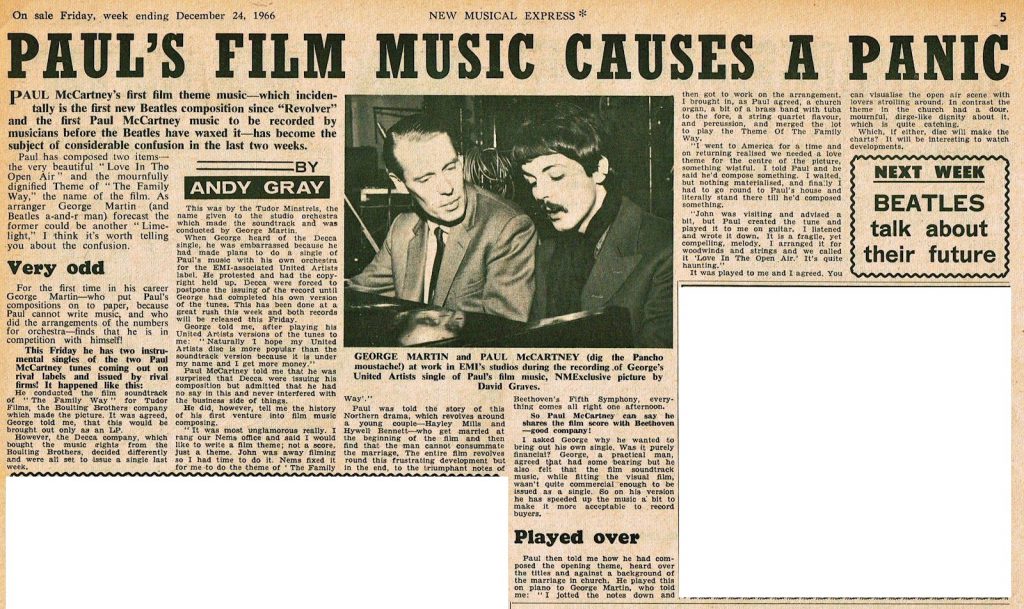

Written by Paul McCartney, George Martin
Recording
Cue 5M1 / 11M3 (from "The Family Way" soundtrack)
Written by Paul McCartney, George Martin
Recording
Cue 6M4 / 7M2 (from "The Family Way" soundtrack)
Written by Paul McCartney, George Martin
Recording
Cue 6M2 / 1M2 (from "The Family Way" soundtrack)
Written by Paul McCartney, George Martin
Recording
Cue 10M1 / 6M3 / 4M1 / 1M3 / 1M4 (from "The Family Way" soundtrack)
Written by Paul McCartney, George Martin
Recording
Written by Paul McCartney
Recording
Cue 2M5 (from "The Family Way" soundtrack)
Written by Paul McCartney, George Martin
Recording
Cue 1M1 (from "The Family Way" soundtrack)
Written by Paul McCartney, George Martin
Recording
Cue 7M1 (from "The Family Way" soundtrack)
Written by Paul McCartney, George Martin
Recording
Cue 11M1 / 11M2 / 10M3 / 8M1 (from "The Family Way" soundtrack)
Written by Paul McCartney, George Martin
Recording
Cue 12M1 (from "The Family Way" soundtrack)
Written by Paul McCartney, George Martin
Recording
Cue 13M1 (from "The Family Way" soundtrack)
Written by Paul McCartney, George Martin
Recording
Cue 13M2 (from "The Family Way" soundtrack)
Written by Paul McCartney, George Martin
Recording
Eight Arms to Hold You: The Solo Beatles Compendium
We owe a lot to Chip Madinger and Mark Easter for the creation of those session pages, but you really have to buy this book to get all the details!
Eight Arms To Hold You: The Solo Beatles Compendium is the ultimate look at the careers of John Lennon, Paul McCartney, George Harrison and Ringo Starr beyond the Beatles. Every aspect of their professional careers as solo artists is explored, from recording sessions, record releases and tours, to television, film and music videos, including everything in between. From their early film soundtrack work to the officially released retrospectives, all solo efforts by the four men are exhaustively examined.
As the paperback version is out of print, you can buy a PDF version on the authors' website

Notice any inaccuracies on this page? Have additional insights or ideas for new content? Or just want to share your thoughts? We value your feedback! Please use the form below to get in touch with us.